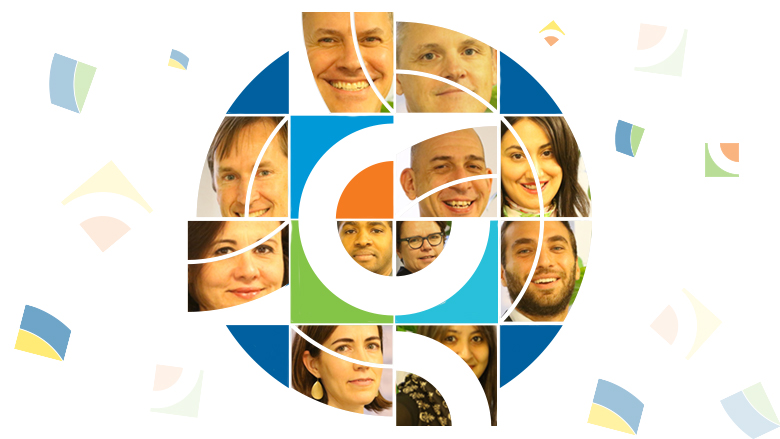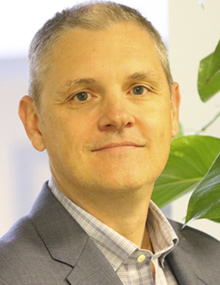
Deon Filmer
Deon Filmer is a Co-Director of the World Development Report 2018. He was previously Lead Economist in the Research Group at the World Bank, and served as Lead Economist in the Human Development department of the Africa Region of the World Bank. He works on issues of human capital and skills, service delivery, and the impact of policies and programs to improve human development outcomes—with research spanning the areas of education, health, social protection, and poverty and inequality. He has published widely in refereed journals, including studies of the impact of demand-side programs on schooling and learning; the roles of poverty, gender, orphanhood, and disability in explaining education inequalities; and the determinants of effective service delivery. He has recently co-authored books on Making Schools Work: New Evidence from Accountability Reforms and Youth Employment in Sub-Saharan Africa, and was a core team member of the World Bank's World Development Reports in 1995 Workers in an Integrating World and 2004 Making Services Work for Poor People. He holds a PhD and MA from Brown University and a BA from Tufts University.
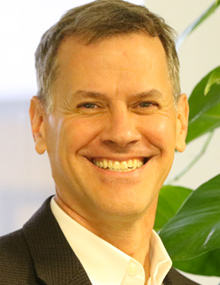
Halsey Rogers
Halsey Rogers is Co-Director of the World Development Report 2018. As Lead Economist with the Education Global Practice, he led the World Bank’s global work on teacher policy, represented the Bank in negotiations on the SDG education agenda, and co-authored the Education Strategy 2020: Learning for All. Rogers has published widely in peer-reviewed journals and advised governments around the world on teacher effectiveness, service delivery, aid and development effectiveness, and other topics such as private tutoring and out-of-school youth. He also co-authored Growth and Empowerment: Making Development Happen (Oxford). Rogers has also served as an advisor to former World Bank chief economists Joseph Stiglitz and Nicholas Stern and as Senior Economist in the Research department. Prior to joining the Bank, he served with the Council of Economic Advisors at the White House, UC Berkeley, the Indonesian Ministry of Finance in Jakarta, and the Korea Development Institute in Seoul. He holds an AB from Princeton University, an MPP from the Harvard Kennedy School, and a PhD in Economics from UC Berkeley.
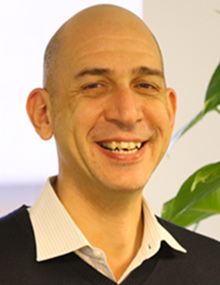
Samer Al-Samarrai
Samer Al-Samarrai is a Senior Economist in the Education Global Practice at the World Bank. Since joining the Bank in 2011, Samer has coordinated the World Bank’s education engagement in Indonesia and the Philippines. He has recently co-authored a number of reports including Assessing Basic Education Service Delivery in the Philippines and Teacher Reform in Indonesia: The Role of Politics and Evidence in Policy Making. Prior to the World Bank, he was a senior policy analyst in UNESCO’s Global Monitoring Report team where he was responsible for developing key themes and coordinating research on the challenges countries faced in achieving the Education For All goals. Between 2001 and 2008, Samer was a Research Fellow at the Institute of Development Studies at the University of Sussex. During that time, he worked on a financial management reform program in Bangladesh and undertook research and advisory work on education finance, labor market outcomes and gender and education in Sub-Saharan Africa. He holds a PhD in Economics from the University of Sussex and a BSc and MSc from the London School of Economics.
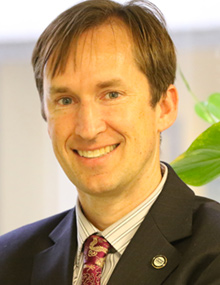
David Evans
David Evans is a Lead Economist on the team for the 2018 World Development Report. His research focuses on the economics of education, health, and social safety nets, particularly in Africa and Latin America. In the past, he coordinated impact evaluations in the Chief Economist's Office for the Africa Region of the World Bank (2012-2016) and worked on education research and operations in the Human Development Department in the Latin America and the Caribbean Region of the World Bank (2009-2012). He has designed and implemented impact evaluations in agriculture, early child development, education, governance, health, and social protection, in Brazil, the Gambia, Kenya, Mexico, Nigeria, Sierra Leone, and Tanzania. He coordinated the World Bank’s efforts to estimate the economic impact of the West African Ebola epidemic of 2014-2015. He has published in Demography, Economic Development and Cultural Change, the Lancet, the Lancet Global Health, the World Bank Research Observer, and World Development. He teaches economic development at the Pardee RAND Graduate School of Public Policy, and he holds a Ph.D. in economics from Harvard University. He writes, mostly on education issues, for the Development Impact blog.
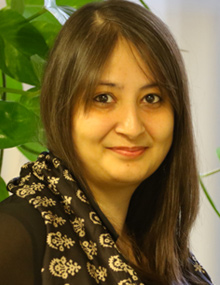
Shwetlena Sabarwal
Shwetlena Sabarwal is a Senior Economist at the Education Global Practice of the World Bank. Her main research interests are in the areas of Economics of Education and Labor Markets. In education, she is working on teacher and student effort, performance-based financing, education markets, and the political economy of education reform. In Labor Markets she her work has focused on entrepreneurship, public works, and the role of kinship networks. She received her PhD in Applied Economics from University of Minnesota in 2008.
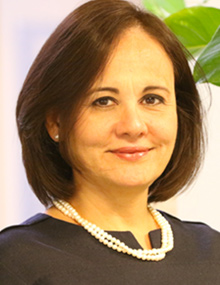
Alexandria Valerio
Alexandria Valerio is a Lead Education Specialist on the 2018 World development Report team. She has over 20 years of experience leading and managing large-scale research projects and senior-level client relationships in education and training. This includes leading several of the Bank’s flagship global engagement programs, including the STEP Skills Measurement Program and SABER Workforce Development. In the past, Alexandria was responsible for the Bank’s education policy dialogue and lending portfolios in the Latin America and the Caribbean region (Argentina, Brazil, Chile, Nicaragua, Paraguay and Panama), as well as in Angola and Mozambique. Her published work includes peer‐reviewed papers and reports on the measurement and impacts of skills mismatch; the role of cognitive, socioemotional and job-relevant skills on labor market outcomes; the effectiveness of entrepreneurship education and training programs; the cost and financing of early childhood education; the impact of school fees; and the role of school health programs to prevent HIV/AIDS in school-age populations. She is currently a Global Lead for the Skills Global Solutions Group, a core member of the global inter-agency group on Technical Vocational Education and Training/Skills, and a member of the technical working group on Human Resource Development for the G20. Alexandria holds a Ph.D. in Comparative Education and Economics of Education from Columbia University and a master’s degree in Public Administration in Economic Development Policy from the Maxwell School at Syracuse University.
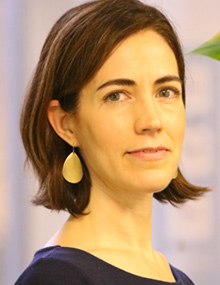
Magdalena Bendini
Magdalena Bendini is an economist who has been studying and working on issues related to human development and poverty for the last 15 years at the World Bank, OECD, UNDP and other international organizations. Her work over the last 5 years has focused primarily on early childhood development, as well as the development of skills over the life cycle. Prior to joining the WDR team, Magdalena spent a year in the Africa Chief Economist’s Office working on the Skills for Africa regional study. She also worked at the Center for Universal Education at The Brookings Institution on the Skills for a Changing World project. She holds a PhD in Public Policy from the University of Maryland.
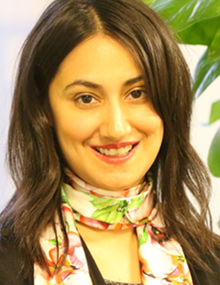
Tara Béteille
Tara Béteille is a Senior Economist at the World Bank, where she has been working on the Bank’s India and Sri Lanka education programs. She is part of the 2018 World Development Report team (Realizing the Promise of Education for Development). Tara joined the World Bank in 2010 through the Young Professional’s Program. She joined the Education Practice in 2012, after working with the Independent Evaluation Group and the Chief Economist’s Office (South Asia Region) from 2010 till 2012. In the education practice, her work has ranged from project design and implementation to research, covering school education through higher education. Her area of expertise includes the political economy of education systems. Tara obtained her PhD from Stanford University in 2009, specializing in the economics of education, after which she worked as a post-doctoral scholar at Stanford’s Center for Education Policy and Analysis. Tara also led ICICI Bank’s non-profit initiatives in education in India from 2000 till 2004.
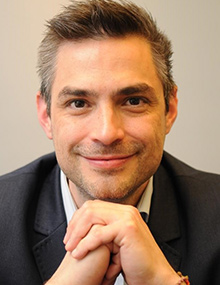
Rafael E. De Hoyos
Rafael E. De Hoyos is a Lead Economist in the World Bank’s education unit for Latin America and the Caribbean. He has published in peer-reviewed journals and advised governments on school-based management, evaluation policies, strategies to reduce dropout rates, and other topics. Previously, he was the chief of advisers to the underminister of education in Mexico (2008-11). Before joining the underministry, he worked in the Development Economics Vice Presidency at the World Bank (2006–08), at the Judge Business School at the University of Cambridge (2005–06), and as a consultant for the United Nations Economic Commission for Latin America and the Caribbean in Mexico and at the United Nations World Institute for Development Economics Research in Finland. He holds an MA in development from the University of Sussex and a PhD in economics from the University of Cambridge.
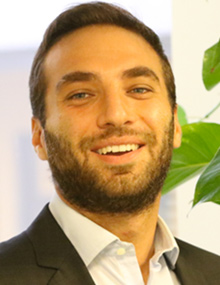
Malek Abu-Jawdeh
Malek Abu-Jawdeh is a Research Analyst on the World Development Report, where his work focuses on highlighting the progress and pitfalls in realizing the promise of education. Prior to this, Malek worked at the International Food Policy Research Institute (IFPRI) where his research focused on the evaluation of social protection, early childhood development, and child malnutrition programs. Malek has also worked as a consultant at the World Bank on issues related to secondary education, information and communications technologies (ICT), and gender. Malek holds a Masters in Public Policy from Georgetown University, a BSc in Biology and International Development from McGill University, and a Diploma in Environment from McGill University.
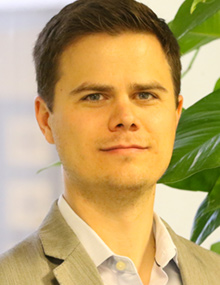
Bradley Larson
Bradley Larson is a Research Analyst on the World Development Report team. He leads the data visualization work and provides data analysis across all the chapters of the Report. He filled a similar role for the two most recent WDRs, Digital Dividends and Governance and the Law. Prior to joining the WDR, he worked for the World Bank’s Public Sector Governance Unit, the Special Inspector General for Iraq Reconstruction, and the Center for Strategic and International Studies. He has an MA in Strategic Studies and Economics from the Johns Hopkins School of Advanced International Studies.
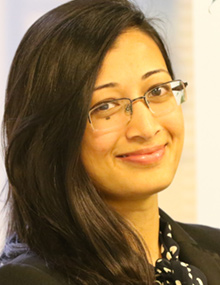
Unika Shrestha
Unika Shrestha is a Research Analyst in the World Development Report team. She will largely be exploring the role played by inherent system complexities as well as political economy forces in implementing education policies and programs. She has extensive experience analyzing and managing data to answer policy-relevant questions. Before joining the WDR team, she worked on analyzing the allocation and implementation of school operational funds in the Philippines. In the past, she has worked on various research projects related to education, social security and health in Latin America and East Asia through the National Bureau of Economic Research. Unika holds a Masters degree in Public Affairs from Princeton’s Woodrow Wilson School and a Bachelors in Economics from Mount Holyoke College.

Fei Yuan
Fei Yuan is a research analyst on the World Development Report 2018 team. She’s focusing on gathering evidence of ways to improve learning and other cross-cutting areas in education. She has expertise in data analysis and evidence synthesis. Prior to joining the WDR team, she was a consultant in the Chief Economist’s Office for the Africa Region of the World Bank, where she worked on education, skills, teacher training and impact evaluation. Prior to joining the Bank, she was a Research Fellow at Boston University. Fei has also worked for Chinese Academy of Social Sciences and Development Bank of Latin America. She holds a M.A. from the Johns Hopkins University School of Advanced International Studies (SAIS) and a B.A. from Beijing Foreign Studies University, China.
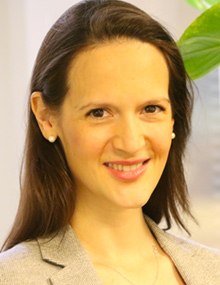
Paula Villaseñor
Paula Villaseñor, a Mexican national, is currently a consultant for the Education Global Practice - World Development Report 2018. Previously, as Appointed General Director within Mexico’s Ministry of Education, she led the national Construye T Program on socio-emotional learning and turned it into one of the largest interventions of its kind in the world. She also served as an advisor to the Vice Minister of Upper Secondary Education on strategies and policies related to skills development and socio-emotional learning, and represented the Vice Ministry at different high-level national and international groups for skills development. Ms. Villaseñor has 10 years of experience within international organizations and the Mexican government. She holds a BA in Economics from ITAM, and an MPA/ID from the Harvard Kennedy School.
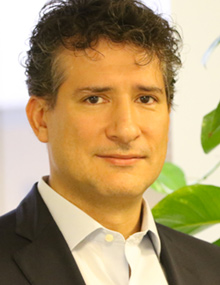
Christian Ponce de Leon
Christian Ponce de Leon is a consultant on the WDR 2018 team. His research focuses on the relationship between political regimes and development, particularly on the political economy of education. Previously, he was the Economic Adviser to the Secretary of Education in Mexico during the implementation of the new education reform. Before his appointment as adviser, Christian worked as a postdoctoral researcher at the Center for the Study of Democratic Politics, Princeton University. He holds an MPA in International Development from the Harvard Kennedy School, and an MA and PhD in Political Science from the University of Chicago, where he taught courses on political economy and international development.
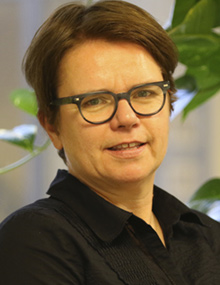
Brónagh Murphy
Brónagh Murphy has been the Senior Program Assistant for the office of World Development Report since 2009. She coordinates and provides technical and logistical support in the planning, production, and launch of the Report. Brónagh has also worked in the World Bank Institute, the Quality Assurance Group, and the Bank's Africa Region.
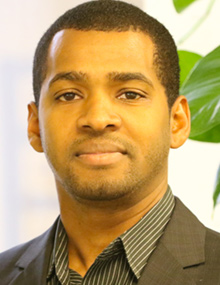
Jason Victor
Jason Victor is a Program Assistant with the office of World Development Report at the World Bank. He provides technical and logistical support in the planning, production, and launch of the Report. Jason has been with the Bank since 1999 and has worked on 13 previous WDRs. He holds a Bachelor's degree in Computer Engineering.

